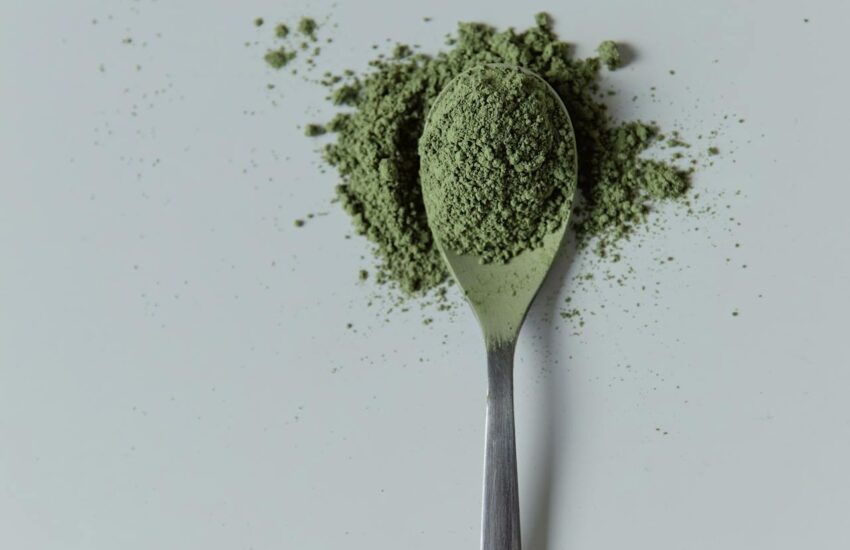Don’t Make This Magnesium Mistake!

If you go onto our homepage you’re going to see we’ve got a ton of different kinds of magnesium online.
The reason for this is simple.
Magnesium is one of the most important minerals you can have for full and vibrant health.
If you’re low in it, then you’re going to feel like crud. But with the right amount it’s scientifically proven your health will benefit over those who are deficient in it.
You’ve probably heard me mention it before, but magnesium is one of the most important minerals for true health. Part of the reason this is true is because it’s used in over 300 different processes.
Not to mention the fact magnesium is awesome for health when taken orally or used topically. That’s why we’ve invested a ton of time and money developing our own product lines of ultra-pure and extremely affordable magnesium supplements which I’ll tell you more about later.
I’ve written extensively about magnesium, and you can see a few of my articles on it and how it’s used to get rid of common skin problems , banish sore muscles and more.
But, for as great as magnesium is, there are actually a few problems people run into when they’re searching for a mineral supplement to take.
In the next few minutes you’re going to learn about the various problems with magnesium supplementation; you’ll also get to see the first oral-magnesium supplement we’ve ever made.
Shocking – See How Many Kinds Of Magnesium There Are
One of the first problems you’re going to run into when searching for magnesium supplements is figuring out which one to take.
It’s not as simple as just going to the store, finding “magnesium” and being done with it.
It’s a little bit more complicated than that.
For instance, take a look at this list of different types of magnesium:
- Magnesium Oxide
- Magnesium Sulfate
- Magnesium Citrate
- Magnesium Aspartate
- Magnesium Glycinate
- Magnesium Malate
- Magnesium Orotate
- Magnesium Taurate
- Magnesium-L-Threonate
- Magnesium Pidolate
That’s a pretty long list, isn’t it? Try having to remember all that for a test!
Quick, can you recite them all?
Well even if you can it doesn’t do much good unless you know what they’re each good for.
Take magnesium oxide for instance – this form of magnesium is one you’re probably quite familiar with, as it’s the form of magnesium you find in milk of magnesia products.
This form of magnesium has strong laxative effects; so if you’re ever a bit stopped up you can turn to it to give your bowels a break.
However, there’s an issue with this kind of magnesium…whenever you take it, the body doesn’t absorb as much as it needs. In the medical community we say it has “low bioavailability,” and we deem it to be one of the least preferred forms of magnesium for improving health.
But what if you wanted to take a magnesium your body could absorb? Well then magnesium citrate would help. With a higher bioavailability, you can take it and expect your body to extract more of this vital nutrient and use it for those 300+ processes I mentioned.
And as you remembered from your study, there are eight other kinds of you’d want to remember.
The good news is today I just wanted to take the time to tell you about one. This new formulation from us here at Health As It Ought To Be has a significant amount of evidence supporting its use as a superior magnesium supplement.
Two Great Reasons Why Magnesium Malate Is Our Go-To Magnesium Supplement
Perhaps the #1 reason we decided to add magnesium malate to our supplement line is we didn’t want people wasting their money when getting magnesium.
Since most of the common forms you’d buy online or in the store are inferior forms (poor bioavailability), you need more to get the right amount. And as you can guess, the more you need, the more money you spend.
Our magnesium malate is one of the most readily absorbed forms of magnesium on the planet. So when you take it you’re truly getting your money’s worth.
Another reason we really like it is because there’s evidence showing it boosts energy production.
Here’s the unique thing about this form of magnesium: unlike some of the other forms in the list, magnesium malate is chelated. Chelation is the bonding of metal ions (magnesium) with other compounds.
In this case, the malate that bonded to the magnesium is a derivative of malic acid – a natural fruit acid which plays a role in activating and making ATP (the energy units which power your cells).
This combination helps give your body clean cellular energy that aids in the completion of many other bodily functions, including:
- Maintaining normal muscle and nerve function
- Keeping heart rhythm steady
- Supporting a healthy immune system
- Keeping bones strong
- Regulating blood sugar levels
- Promoting normal blood pressure
- Supporting energy metabolism and protein synthesis
So it’s pretty obvious why you’d want to include magnesium malate in your supplement regimen, right?
The other major reason to consider magnesium malate supplementation is the way it affects your muscles.
Once malic acid enters into muscle tissue, it will help to alleviate local pain. This is why it’s commonly recommended for nerve and muscle health.
“Clinical tests are proving malic acid to be a great asset in the treatment of FM and pain. In one clinical study, reported in “The Journal of Nutritional Medicine,” 15 patients (aged 32-60) taking a dosage of 200-2400 mg. of maIic acid with 300-600 mg of magnesium for four to eight weeks, reported significant pain relief within 48 hours. These positive effects continued to increase over the test period.”
But it’s not just malic acid working to kill the pain; topical applications of magnesium chloride can help treat sore muscles at the local level.
And when ingested, magnesium helps to relieve both muscle and nerve pain.
As Dr. Oz said in a write up on magnesium and pain relief:
“Clinical experience, as well as research in nerve pain [], has shown that magnesium can be an effective treatment for pain. Although it is clear why magnesium can decrease muscle pain (it makes muscles relax), why it would help nerve pain was less clear. A new study on rats to be printed in The Journal of Physiology confirms our clinical experience that magnesium decreases nerve pain — while also pointing to how it works”
So as you can guess, the combination of the two creates a killer combo for energy and pain relief.
At the end of the day it’s for these reasons – as well as how quickly and efficiently this form of magnesium is absorbed – that we chose to develop our own magnesium malate.
Similar dosages and strengths to our form of magnesium malate can be found on the internet for much higher prices.
However, we’ve designed this one exclusively for our patients and you can get it too by clicking here or on the image below.
Talk soon,
Dr. Wiggy
www.HealthAsItOughtToBe.com


